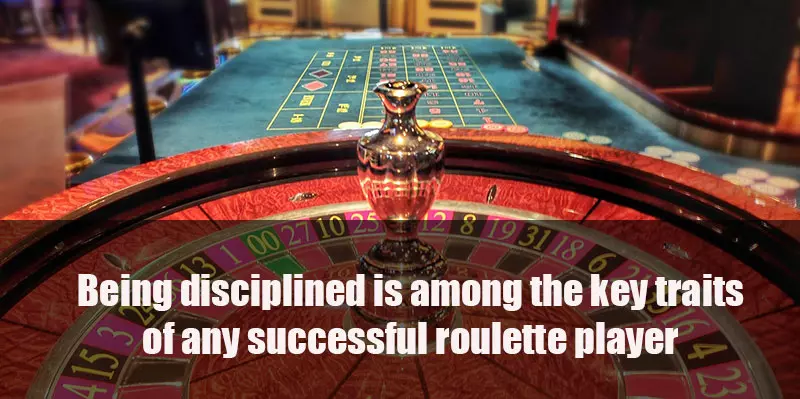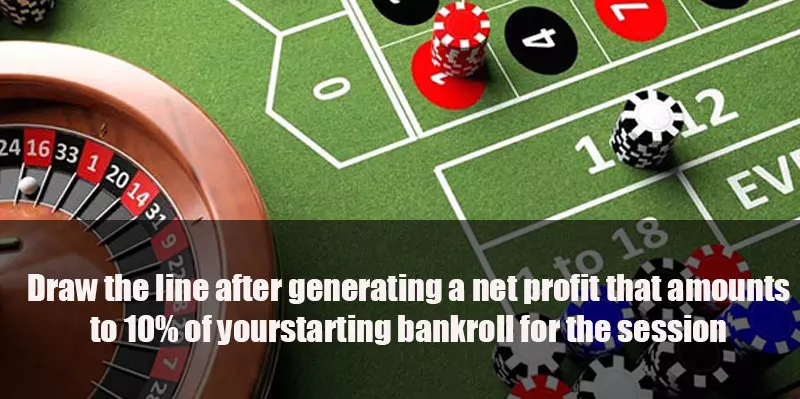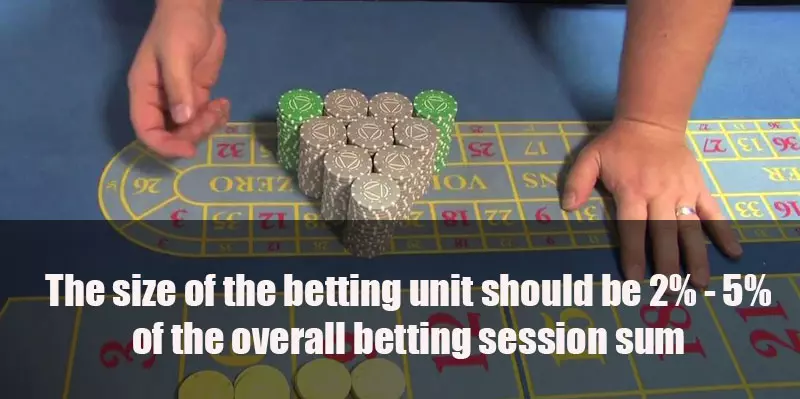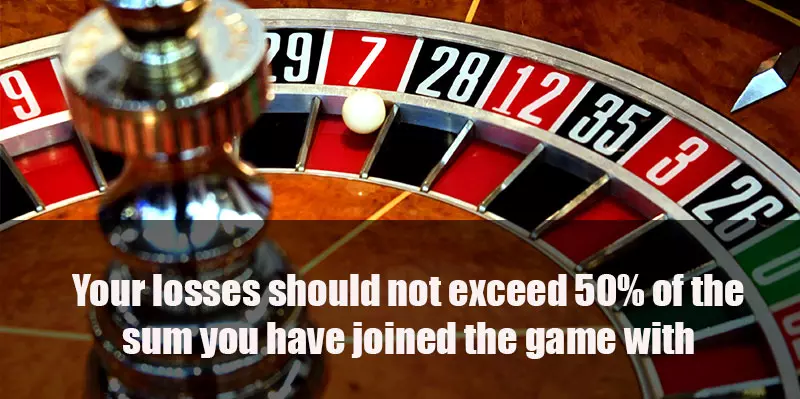If you pay closer attention to the gaming suites of land-based and online casinos, you will notice that roulette games feature in almost all of them. Despite the game’s inherent entertainment value, many players struggle to remain in control of their roulette betting sessions and quite often end up with a depleted bankroll.
Many people share the common misconception that one cannot generate substantial profits playing roulette because the game relies heavily on chance. Yet, becoming a successful roulette player does require a good grasp of the game, and learning it is not as challenging as it can be with some other casino games.
In fact, earning a decent profit is attainable, provided that casino enthusiasts remain disciplined during the time they spend at the roulette table. There are several aspects of exercising discipline while betting on roulette, as this involves adequate bankroll management, planning in advance, and adhering to your win goals and loss limits.
Of course, there is no guarantee that you will win a life-changing amount of money at the roulette table, even if you are exceptionally disciplined. However, discipline can substantially increase your chances of turning a profit and help you reduce your losses to a minimum.
Why Do Players Need Discipline?
Being disciplined is one of the key traits of any successful roulette player because it is precisely discipline that enables gamblers to manage their funds when they take a seat at the table. While playing roulette, losing streaks can sometimes be rather long-lasting, but it is not out of the question that sustained winning streaks might occur as well. Although there is no telling when a streak will end, it is crucial to remember that it will not last forever.
It is not uncommon for roulette players to experience several losing bets in a row. In such cases, those who lack discipline tend to get emotional, which clouds their better judgement. It is typical for such players to recklessly increase their stakes in the hope of winning back what they have already lost with a single lucky bet. Often, they end up leaving the table with empty pockets.
Discipline revolves around self-control and knowing when to quit the game, regardless of whether you are on a hot run or have entered a lengthy losing streak. Roulette novices who lack self-control usually become overly exhilarated when they secure a substantial profit after a winning streak. This causes them to grow greedy and remain at the table until they end up giving back what they have already won. The result is the same – they leave the game empty-handed.
From this, it follows that discipline allows players to remain rational at the table and prevents them from making rash decisions and chasing their losses. Consequently, discipline enables players to minimise their losses and, hopefully, generate a greater profit by the end of their betting session.

Distinction between Discipline and Willpower
It seems many gambling enthusiasts fail to distinguish between discipline and willpower and often use the two terms as if they were interchangeable. Although they are intertwined when gambling is concerned, they do not refer to one and the same thing.
When discipline is concerned, the term is used to describe people’s long-term commitment to do something, and in most cases what they aspire to is improvement.
Another important point worth mentioning about discipline is that, in order to maintain it, casino enthusiasts need to devise some kind of plan, be it vague or strict, and stay the course. This explains why discipline is far more connected to players’ long-term mindset.
This is precisely where the most obvious difference between discipline and willpower lies, as the latter is all about the impetus or determination to do something.
It goes without saying that willpower has a significant influence on gamblers and the decisions they make. Most importantly, proper bankroll management cannot do without willpower, which is why, most of the time, gambling enthusiasts who are not that strong-willed struggle to handle their budgets properly.
It often occurs that such roulette players end up risking too large a portion of their funds on individual stakes, which ultimately results in a depleted bankroll. As is often the case, these gamblers are also inclined to bet on roulette using funds that were meant for other purposes.
Unsurprisingly, such roulette fans often feel compelled to place long-shot bets, such as wagers on individual numbers that carry a high risk. The results this approach produces are rarely positive because, more often than not, these players soon run out of funds to continue their betting session. By contrast, roulette lovers who are strong-willed tend to make wiser decisions regarding the wagers they place and often opt for bets that give them a much stronger chance of scoring a win.
Another characteristic of headstrong roulette players and gambling enthusiasts in general is that they take the time to expand their knowledge of the game in order to enhance their chances of achieving the wins they are after. This is seldom the case with players who are not as wilful, as they often save themselves the hassle of reading up on the rules of the game or on ways to improve their results.
All of this helps to explain why discipline ranks higher than willpower.

Discipline and Money Management
Discipline and proper money management go hand in hand not only in roulette but in gambling as a whole. Gamblers are expected to decide on the size of their bankroll and determine a base betting unit before joining the roulette table. It is up to players to choose how large their bankroll will be. Yet, it is advisable to set aside a specific sum of money you are comfortable spending each month. This sum is then divided by the number of betting sessions per month. So, if you are comfortable spending £400 on roulette each month and are planning four betting sessions, your bankroll for each will be £100.
It is crucial to keep the funds you have allocated for playing roulette separate from the money you use for bills, rent, food and so on. What makes disciplined roulette players recognisable is that they never attempt to play beyond the limits of their allocated bankroll.
Betting on the Action Numbers
Roulette Money Management
Gambling Discipline
ROI and Return to Player
Best Casinos to Play Roulette
Deciding what your base betting unit will be is also crucial. It depends on the size of your overall bankroll. Experienced roulette players recommend that the betting unit should range between 2% and 5% of the total sum you have set aside for the session. A disciplined player will stick to their initial base betting unit and will never raise their stakes in a foolish attempt to recoup the losses sustained during a bad run.
In order to stretch their bankroll over a longer period, roulette fans need to make sure that the gap between their monthly bankroll and the base bet unit they have chosen is not too great.

In addition, some experienced players prefer to take advantage of one of the many roulette betting systems available. If you are keen to give such systems a try, you should be aware that you will be presented with a broad range of options to choose from.
Yet, keep in mind that using any betting system while playing roulette will by no means reduce the house edge or affect the outcome of the spins, but sticking to one might aid money management, enable you to take advantage of winning streaks, help you reduce losses and sometimes even generate consistent profits. By comparison, those who lack self-control are tempted to deviate from their betting strategy because they have a “hunch” that a particular bet will help them win big. Unfortunately, more often than not, they are wrong.
In fact, many roulette lovers are prone to give betting systems a try because they are often considered a fool-proof way of winning. Yet, the majority of knowledgeable roulette players will attempt to talk you out of implementing such a system, as it offers no means of overcoming the casino’s advantage, has zero impact on your chances of winning, and can have an exceptionally detrimental effect on your bankroll.
Another thing roulette lovers can do to ensure they manage their funds properly is to make use of spreads. This means deciding on the range within which their wagers will fall; in other words, they will have several bet sizes to choose from.
Naturally, when choosing these amounts, casino enthusiasts should be guided by the goals they have set, their bankroll, experience and, above all, their style of play.
If you want to avoid risks, you should consider a spread ranging between 1 and 40 betting units. Conversely, if you are a more daring roulette player, you might feel comfortable with a spread ranging between 10 and 400 units.
To ensure that a loss or even several losing stakes will not cause you sleepless nights, it is best to opt for a smaller spread of units. Still, roulette lovers should not ignore the risk that this approach carries.

Discipline when Winning
As mentioned previously, discipline is required not only when you experience a bad run but also when you are on a winning streak. Being disciplined on lucky days will help you fully leverage your winning streaks while protecting you from the possibility of giving back what you have already won.
All disciplined roulette players set win goals for themselves because knowing when to stop, even when you are winning, is vitally important. Seasoned roulette players recommend that your win goal should be around 10% of the overall bankroll for the session. Thus, if you join the game with £200, you should be prepared to leave as soon as you have accumulated a net profit of £20. That is a realistic figure. Besides, learning to accept small returns is part of being disciplined.
Once you become better acquainted with the ins and outs of roulette, you may consider raising your win goal to 20%, 25% or even 30% of your starting bankroll for the session.
After you have achieved your predetermined goal, divide your winnings in half. Set aside one half as a guarantee and continue playing with the remaining half. By splitting the sum in this way, you are guaranteed to turn a profit for the session. This will also prevent you from giving back everything you have won so far.
Some experienced roulette players recommend applying the “Up and Pull” approach when you reach your win goal. Here is how it works. Imagine you have won £8 with a given bet. You pull back the profit of £8 and reduce the size of your next bet to £5. You win on the next spin, so you increase your next bet to £7 and pull back a profit of £3. Then, you bet another £7 and win again. You increase your next bet to £10 and pull back a profit of £4.
Of course, this is only an example, but applying this strategy can help you extend your winning streak. You keep increasing the wagers, yet you always pull back some of your winnings, which should allow you to turn a profit for the betting cycle even if you lose on the next spin.

Discipline when Losing
Quitting the game when you are winning is often easier. Many players tend to lose control whenever they experience a lengthy losing streak. The consequences can be devastating, as all too often such players part with their entire bankrolls without generating any profit whatsoever.
That is why setting a loss limit is every bit as important as determining a win goal. In other words, once you have lost a certain amount of money, you must stop playing. You may opt for smaller loss limits of 20%, 30% or 40% of your starting bankroll for the session, but your losses should by no means exceed 50% of the initial sum with which you joined the game.
It is also advisable to end a betting session if you experience consecutive losses on the first four or five spins. More risk-averse players typically depart from the table after the first three losing spins. The toughest part of playing roulette is learning how to leave when you are losing.
Nevertheless, it is important to quit when it becomes clear that things are not panning out as you hoped, because there is no guarantee that your luck will turn if you continue playing. This is why you should leave as soon as you reach your loss limit; doing so will prevent you from depleting your entire bankroll.
On that note, remember that you should never play down to the last couple of chips you have left. Stick to the loss limit you set for yourself and quit the game as soon as you reach it. There is no guarantee you will enter a winning streak with your last chips; instead, you are more likely to end with a drained bankroll.

Are Casino Comps Worthwhile
Gambling enthusiasts who are particularly interested in roulette and are looking for a way to spend more time playing the game might find casino comp points appealing. It is vital to remember, however, that in most cases you will be required to spend at least four hours on the casino premises in order to benefit from these perks. Of course, players are free to stay in the casino as long as they wish, but they should bear in mind that the longer the session, the more likely they are to deplete their bankroll.
This is particularly true when roulette is concerned, because it ranks among the negative-expectation casino games. In other words, losing in the long run is unavoidable, no matter how extensive your experience is.
Players often forget that there is no casino game that does not favour the house, and roulette is no exception to this rule. As you may already know, the expected value of a casino game coincides with the house edge; the only difference is that it is expressed with a negative sign.
In other words, with single-zero roulette variants the expected value is -2.70%, while with variants that follow the American rules it is -5.26%. When the La Partage or En Prison rules are applied, the expected value of roulette becomes -1.35%.
Most of the time, roulette aficionados will be offered 30% of the amount they have wagered in the form of comp points. Some casino operators are a bit more generous and offer a refund of 50%. Yet, earning these perks can turn out to be rather costly.
The elements considered when estimating the number of comp points a player will receive include the number of hours spent at the roulette table, the casino advantage, the number of stakes made per hour, and the average amount of those stakes, among others.
Roulette fans should remember that, no matter how alluring these special deals might seem, they will not recover all the money they have gambled away. Nevertheless, comp points can help players curb their losses to some extent.
Conclusion
Forcing yourself to adhere to the above-listed rules will surely be tough at first, but if you do, you will be well on your way to becoming a successful roulette player. Discipline is difficult to acquire and just as difficult to maintain, yet it is discipline that translates into better results at the roulette table, as it optimises your money management, reduces your losses and, sometimes, even helps you generate consistent profits.



